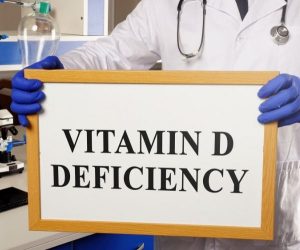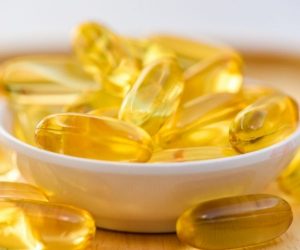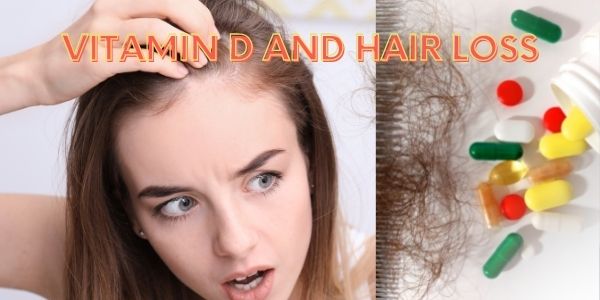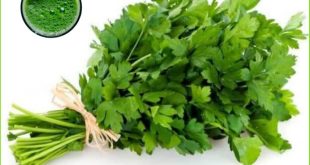Vitamin D is an important vitamin for your body, but it also plays a role in the health of your hair. It helps you to maintain healthy hair growth by supporting keratin production, which strengthens your hair follicles. This vitamin also prevents premature graying and balding! There are many ways that people can get vitamin D – from food sources like fish or eggs to vitamin supplements. Read this article to find out more about how vitamin d impacts hair loss!
What is Vitamin D Deficiency?
Vitamin D deficiency can cause your hair to become thin and brittle. The best way to know if you are deficient in vitamin d is by getting tested for it with a blood test – ask your doctor about routine tests that they perform!
What Foods Contain Vitamin D?
Some of the foods that naturally contain high amounts of vitamin d include:
- Sardines
- Salmon
- Eggs
- Cod Liver Oil Supplements
What are the Symptoms of Vitamin D Deficiency?
The first sign of a vitamin d deficiency can be hair loss. However, this also depends on how much vitamin d your body is lacking as well as your age.
- In children, vitamin d deficiency can lead to delayed growth and development.
- If you are a teenager or an adult, the symptoms of a vitamin d deficiency include:
- Hair loss that starts at the temples and forehead
- Dry skin with no known cause (this is actually one of the most common symptoms of a vitamin d deficiency)
- General weakness and fatigue
- In children, young teenagers, and pregnant women, vitamin d deficiency can cause severe bone pain. If you have this symptom, along with the others listed above, it is important to see your doctor for treatment immediately!
How do I Get Vitamin D? Can I Get Vitamin D from Food?
The best way to get vitamin D is through dietary supplements or by eating foods that naturally contain high amounts of it. You cannot receive enough vitamin D from the sun because you need hours of exposure for your skin to synthesize this nutrient – and even then, too much time in the sun can cause damage such as sunburns or skin cancer.

What are the Benefits of Vitamin D?
There are many benefits to getting enough vitamin D, some of the most notable include:
- Supports healthy hair growth and prevents thinning hair!
- Prevents premature graying and balding by supporting keratin production.
- Helps with weight loss.
How Much Vitamin D Do I Need to Get the Benefits?
In order to get enough vitamin D from food sources, you need at least 400 IU of the nutrient every day. This is smaller than most people think! In fact, if your diet contains fish or eggs that have been fortified with vitamin D, you may only need to consume about 200 IU of this nutrient per day.
How is Vitamin D Connected to Hair Loss?
As mentioned earlier, vitamin D is important for healthy hair growth. It helps the body synthesize keratin – a fibrous protein that makes up your skin and nails, as well as some of the connective tissue in your scalp (which is why taking enough vitamin D can prevent thinning hair). Vitamin D deficiency causes less keratin to be produced, which weakens your hair follicles – this results in thinning and brittle hair.
Some studies have shown that vitamin D helps to increase testosterone levels (this hormone is responsible for the emergence of male pattern baldness). However, there are no current guidelines on how much vitamin D men need to prevent or reverse their hair loss!
Why Does Vitamin D Deficiency Causes Hair Loss?
A vitamin D deficiency can cause your body to produce less keratin. Keratin is the fibrous protein that makes up your skin and nails as well as some of the connective tissue in your scalp – this results in thinning, weak hair that falls out easily.
Vitamin D also helps increase testosterone levels (this hormone is responsible for the emergence of male pattern baldness). However, this is also unclear as supplementing with vitamin D may not increase testosterone levels.

What Vitamin D Deficient Has to Do With Alopecia?
There are several different forms of alopecia which is a medical term for hair loss, these forms are:
- Alopecia Areata (AA)
- Alopecia Totalis (AT)
- And alopecia Universalis (AU)
The Connection Between Vitamin D Deficiency and Alopecia Areata (AA)
This disease causes bald patches to appear on your scalp or other parts of your body. However, some studies have omitted the fact that taking vitamin D supplements may help to treat or prevent alopecia areata. This is because there are some who believe that alopecia areata is caused by an autoimmune disease that triggers your immune system to attack hair follicles – this attack causes bald patches.
However, the connection between vitamin D and alopecia areata is unclear. Some studies had shown that the number of cases of alopecia areata had increased during periods when there was less exposure to sunlight (which means lower levels of vitamin D). Other studies, however, have shown that taking vitamin D supplements can help promote hair growth and prevent alopecia recurrences.
How to Check If You’re Vitamin D Deficient or Not?
The best way to know if you are deficient in vitamin D is by getting tested for it with a blood test – ask your doctor about routine tests that they perform!
If you aren’t sure what’s causing your hair loss, try adding more foods high in vitamin D to your diet. Make sure these healthy sources of food also contain other nutrients your body needs, such as iron.
Remember that vitamin d deficiency can be caused by numerous things – too much soy intake, for example! Don’t just assume you are lacking this nutrient because of your thinning hair or prematurely graying hair. If you have any questions about getting enough vitamin D, it is best to ask your physician for help.
If you know it is a vitamin d deficiency, make sure to ask about taking supplements and getting tested again in the future! Sometimes hair loss caused by low levels of this nutrient can be treated with dietary changes, but sometimes supplementation is also required.
What are Possible Treatments of Vitamin D Deficiency and Hair Loss?
With the wide selection of hair loss treatments available today, it is difficult to know which one will give you the best results. A new treatment option may be available in the near future as researchers learn more about how vitamin D affects hair growth.
As of now, there are some possible treatments that could help solve the problem with vitamin D deficiency and hair loss. People who have low vitamin D levels and hair loss should consider taking supplementation to increase their level of this important vitamin.

1. Vitamin D Based Hair Loss Treatments
Vitamin D is an essential vitamin that helps the body maintain good health. It may also be able to reverse and prevent some forms of hair loss. Vitamin D deficiency causes a problem with calcium absorption in the body, which can lead to thinning hair and brittle nails. As we age, our bodies do not absorb vitamin D as easily, making supplementation a necessity.
2. Vitamin B12 Injections
In addition to taking a vitamin supplement, you may want to consider getting your levels checked for other possible deficiencies that can affect hair growth and prevent the regrowth of lost hair. One such deficiency is low levels of vitamin B12.
3. Hair Loss Treatment Plans
There are many reasons that vitamin D can affect hair loss, and there are also multiple ways to deal with the problem. Whether you have low levels of this important vitamin or just want your hair back to its full thickness, there are treatments available.
What Diet to Follow to Avoid Vitamin D Deficiency and Hair Loss?
Vitamin D is a very important vitamin that participates in many body functions, such as bone growth and the regulation of calcium levels. Since vitamin D is naturally produced by the skin when exposed to sunlight, it’s often found in foods like fatty fish and cod liver oil.
Unfortunately, people aren’t spending enough time outside nowadays, and sunscreen use impedes vitamin D production in the skin. In addition, many people are deficient in vitamin D due to what they eat or because of health conditions that prevent proper absorption of this vitamin.
Diet 1: Avoid D-binding foods
Vitamin D is a fat-soluble vitamin, which means that it binds to dietary fat. The body needs dietary fat in order to absorb this vitamin properly. If you are on a low-fat diet, there’s a good chance you’re not absorbing all the vitamin D that you get from your daily food.
Diet 2: Avoid gluten
People with celiac disease are at an increased risk of being deficient in vitamin D. This is because this condition prevents their bodies from absorbing nutrients properly.
Diet 3: Get enough dietary calcium and magnesium
Studies have found that people who have a high intake of both these minerals, along with vitamin D, are less likely to develop osteoporosis. This is because calcium and magnesium support the absorption of vitamin D from food.
Diet 4: Eat fatty fish or cod liver oil
If you don’t want to go outside, then your diet should include foods that are naturally rich in vitamin D. These include fatty fish such as salmon, mackerel, herring, rainbow trout, and sardines. Cod liver oil is also a good dietary source of vitamin D.
Diet 5: Supplement with vitamin D
If you’re still not getting enough vitamin D through your diet, then consider taking supplements to make up for the deficit. According to the National Institutes of Health, adults should take at least 600 IU of vitamin D3 per day. This will help to prevent many health problems, including rickets and osteoporosis.
REFERENCES & RESOURCES:
Effect of vitamin D supplementation
Vitamin D Level in Alopecia Areata
Sun Safety and Alopecia Areata
Vitamin D3 Analogs Stimulate Hair Growth
 healthy life for all healthy life for all
healthy life for all healthy life for all






